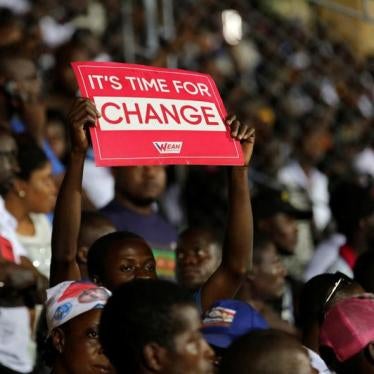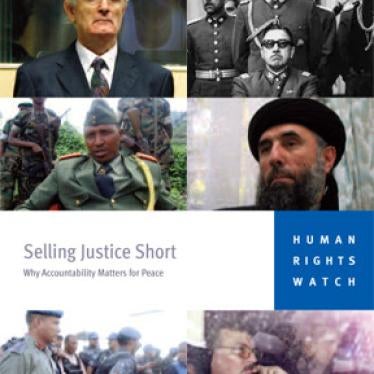Following the end of the conflict in Sierra Leone in 2002, the domestic justice system lacked the capacity to hold perpetrators of crimes accountable. Prompted by a request from Sierra Leone President Ahmad Tejan Kabbah to the United Nations, the Special Court for Sierra Leone (SCSL) was established by agreement between the Sierra Leone government and the United Nations to prosecute serious crimes committed during the war based on “international standards of justice, fairness, and due process of law.”
The court was the first stand-alone “hybrid” or “mixed” international-national war crimes tribunal that is not a part of a domestic justice system, but is located in the country where the crimes were committed. The Special Court has held three trials and convicted eight individuals on charges of crimes committed during the Sierra Leone conflict, in addition to the trial of Charles Taylor. The cases were grouped according to the suspects’ affiliation with the three main warring factions: the Armed Forces Revolutionary Council (AFRC), the Civil Defense Forces (CDF), and the Revolutionary United Front (RUF). No other indictments are expected and the court is in the process of winding down its operations.
(Back to the Charles Taylor feature)
Key Documents:
Reports:
Bringing Justice: the Special Court for Sierra Leone
Other Documents:
Convictions for War Crimes in Sierra Leone
Sierra Leone: War Crimes Court Makes Major Strides
Sierra Leone: War Crimes Court Impeded by Lack of Funds
Sierra Leone Indictments Welcomed
The Interrelationship between the Sierra Leone Special Court and Truth and Reconciliation Commission
Sierra Leone: Establish Special Court Quickly
Recommendations for an Effective Special Court for Sierra Leone
Sierra Leone: Justice and the Special Court







